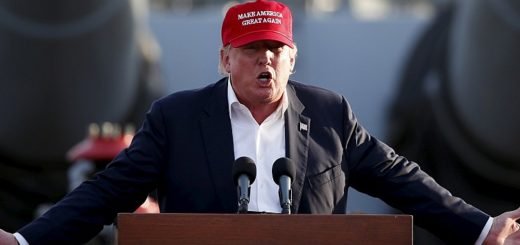Israel appeals to Russia to return sanctions favor in Middle East
Israel’s defense minister reminded Russia of his government’s decision not to join Western sanctions against it and asked that Moscow reciprocate with a more pro-Israel approach to Syria and Iran.
Avigdor Lieberman’s appeal followed Russia’s rare calling out of Israel over an April 9 air strike in Syria and came as U.S. President Donald Trump mulls scrapping the 2015 Iranian nuclear deal by May 12, a review opposed by Moscow.
“We value these relations with Russia,” Lieberman said in an interview with the Russian newspaper Kommersant.

Russian President Vladimir Putin left and Israeli Prime Minister Benjamin Netanyahu deliver joint statements June 25, 2012, at the Israeli leader’s residence in Jerusalem. The two met again Monday to discuss Russia sending weapons to Syria. File photo by Jim Hollander/Pool
“Even when our close partners pressured us, as in the case of sanctions against Russia, we did not join them,” he said, alluding to Western powers that clashed with Moscow over the Crimea crisis and the poisoning of a Russian ex-spy in Britain.
“A lot of countries have recently expelled Russian diplomats. Israel did not join in this action,” he added.
“We take Russia’s interests into account and we hope that Russia will take into account our interests, here in the Middle East. We expect Russia’s understanding and support when it comes to our vital interests.”
Since intervening in the Syrian civil war on behalf of President Bashar al-Assad in 2015, Russia has generally turned a blind eye to Israeli attacks on suspected arms transfers and deployments by his Iranian and Hezbollah allies.
But Moscow’s condemnation of the April 9 strike that killed seven Iranian personnel set off speculation in Israel that Russian patience might be wearing thin as Western powers clashed with Assad over his government’s alleged use of poison gas.
“We have no intention of meddling in Syria’s internal affairs. What we will not tolerate is Iran turning Syria into a vanguard against Israel,” Lieberman told Kommersant.
Arguing that the nuclear deal had not permanently denied Iran bomb-making capabilities, Lieberman invoked World War Two.
“This deal should be treated exactly like the Munich agreement,” he said, referring to Britain’s 1938 appeasement of Nazi Germany. “Just like what happened with what they tried to do with Hitler, we will end up paying a very heavy price.”
Referring to the Iranian leadership’s calls for Israel’s destruction, Lieberman hoped for “a clear and unequivocal response” from Russia, which, he said, was very “assiduous” in remembering the events of World War Two.
Source: Reuters
Irfan Ansari The Kootneeti Team - Middle East Monitor



















